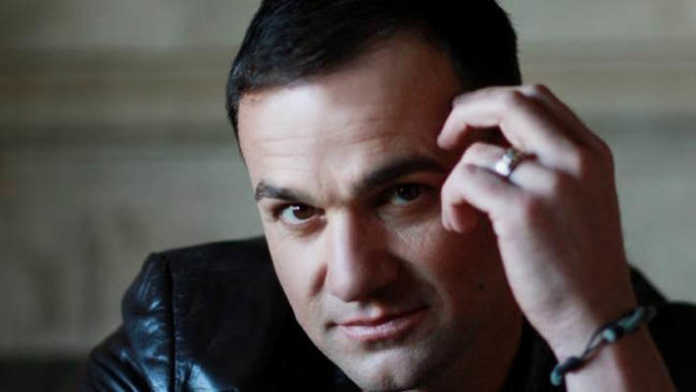Shannon Noll’s arrest raises concerning questions about the nature of reality television.
You’ve probably heard by now that Australian sweetheart Shannon Noll punched a bouncer outside an Adelaide strip club over the weekend and was charged with two counts of assault.
Not cool Shannon. Not cool.
The big man made a bit of a comeback over the past couple of years, developing a cult following with fans claiming he had been ‘robbed’ of an Australian Idol victory back in 2003.
Millennials developed a real love for the Southern Cross tattooed, husky toned singer, who played at an increasing number of venues around the country last year including my graduation. Nice.
The resurgence was probably 70% hipster irony and 30% genuine fan girls fan girl-ing.
Regardless of whether you love Shannon authentically or for a laugh, no one can dispute his take on What About Me is a killer underdog anthem. Also, his less popular track Drive lets us know that he has a big black car, he has a big black shiny car.
I’m getting distracted by lyrical genius please forgive me.
Shannon’s mishap over the weekend made headlines around the country and though I, as a combination hipster-ironic- genuine-fangirl- fangirling, was disappointed in him, his action spurred me to ask the ever so important question-
What happens when the reality TV journey is over and contestants are thrust back in to the real world, now with quasi celebrity status?
Is the attention profitable or is life as a half-star frustrating and somewhat limiting as you will always be that guy who came fourth on Masterchef?
The whole world of reality television is murky. What is real and what is fake? How edited are these realities and what damage is unintentionally being done to unknowing participants?
Do they tell you when you sign up that your life is likely to change forever, but not necessarily for the better?
There are of course people who partake in shows like Australian Idol who make successes of themselves, think Guy Sebastian and Jess Mauboy, who are both household names and wouldn’t be where they are without the exposure reality television provided them.
Perhaps less so in talent contests and more so in shows like The Bachelor, My Kitchen Rules and Big Brother, it seems producers look for contestants who will be wildly entertaining and who can be edited to provide shock value that will bring in massive ratings.
But what happens when filming is over and participants see the final edits of their show and learn they have been cast as the shows villain, their every word twisted to fit the desired narrative of the show?
With the internet allowing keyboard warriors to voice any grotesque opinion they feel worthy, it’s no wonder contestants struggle in the months and years following their time in the spotlight.
Over the past ten years 21 reality television participants around the globe have committed suicide.
This is not surprising when you are promised you will be the next big thing but are instead rejected on a national stage and then tormented on social media. This figure makes you hope that there are programs in place that provide competitors professionals to speak to for when it all gets too much.
Whilst I am not naive enough to suggest that Shannon did what he did because he came second on Australian Idol, I am suggesting, quite sincerely, that we need to tread lightly with our treatment of the people we see on our screens on these reality programs.
They aren’t characters they are people and we can never know what is going through another person’s mind nor can we know the impact of having your every mistake broadcast for the country to judge and ridicule.
So before we laugh at the Shannon Noll memes that will no doubt flood our Facebook feeds over the next few weeks, let’s maybe think about the person behind the celebrity and be a little bit kinder to each other.

![5 Reasons You Should Travel Alone Airplane [image source: chau nguyen/ http://thedevilhatessweatpants.blogspot.com.au ], crowd ink, crowdink, crowdink.com, crowdink.com.au](https://crowdink.com/wp-content/uploads/2016/08/Chau-airplane-218x150.jpg)




























![5 Reasons You Should Travel Alone Airplane [image source: chau nguyen/ http://thedevilhatessweatpants.blogspot.com.au ], crowd ink, crowdink, crowdink.com, crowdink.com.au](https://crowdink.com/wp-content/uploads/2016/08/Chau-airplane-100x70.jpg)


